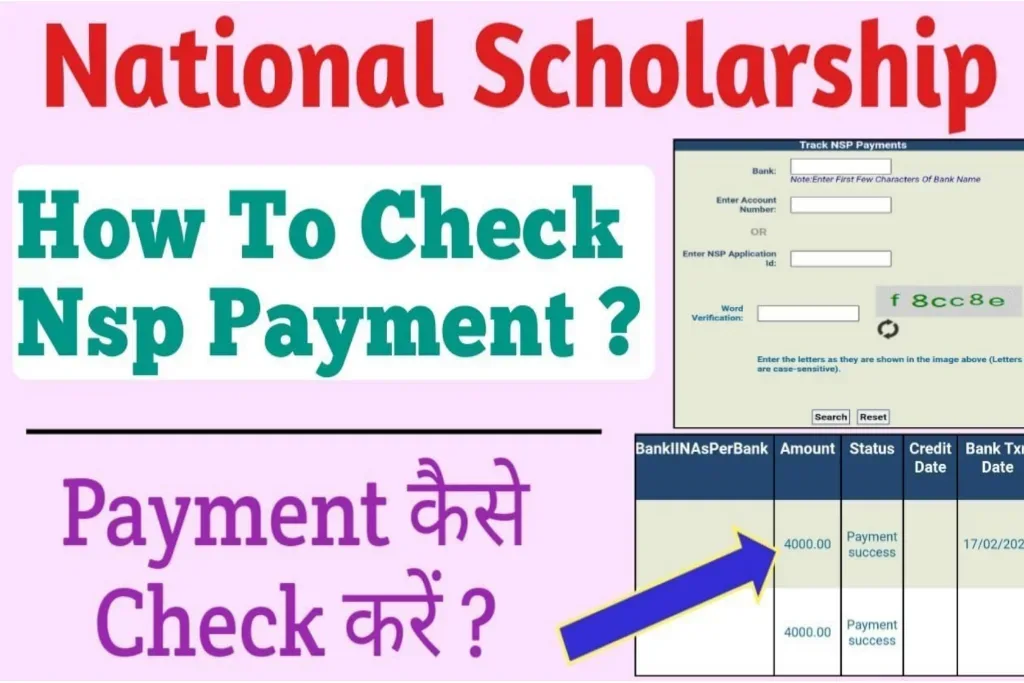The National Scholarship Portal (NSP) 2.0 serves as a central platform for students in India to apply for various scholarship schemes offered by the central and state governments. This guide will equip you with the knowledge to navigate NSP 2.0 effectively in 2024, focusing on understanding scholarship amounts and checking application status.
Understanding Scholarship Amounts
Unlike a single scholarship program, NSP 2.0 hosts numerous schemes, each with its own distinct scholarship amount. Here’s how to find details on specific scholarships:
- Official NSP Website: The official NSP website, https://scholarships.gov.in/, offers a comprehensive list of scholarship schemes.
- Scheme Selection: Each scheme has a dedicated page outlining details like eligibility criteria, application process, and most importantly, the scholarship amount.
- Filtering Options: The NSP portal allows filtering scholarships by category (SC/ST/OBC etc.), level of study (undergraduate, postgraduate etc.), and department. Utilize these filters to find relevant scholarships and their corresponding amounts.
Examples of Scholarship Amounts (as of May 26, 2024):
- National Means-cum-Merit Scholarship (NMMS): Rs. 12,000 per year for students of Class 9th to 12th (awarded monthly).
- Prime Minister’s Scholarship Scheme (For RPF/RPSF): Rs. 2,000 per month for Males and Rs. 2,250 per month for Females.
Important Note: Scholarship amounts are subject to change based on government revisions. Always refer to the official scheme page on the NSP website for the most up-to-date information.
Checking Application Status
After submitting your application, it’s crucial to stay updated on its status. Here’s how to do so on the NSP portal:
- Login: Visit the NSP website and log in using your registered credentials.
- Applicant Dashboard: Once logged in, you’ll land on your applicant dashboard. This dashboard displays a list of scholarships you’ve applied for.
- Status Tracking: For each scholarship application, the status will be indicated. Common statuses include “Submitted,” “Processing,” “Selected,” and “Rejected.”
Additional Tips for Tracking Application Status:
- Reference Number: Note down the reference number assigned to your application during submission. This number helps track the application’s progress.
- Email Notifications: Enable email notifications from the NSP portal to receive updates regarding your application status.
- Contact Authorities: If your application status remains unclear or shows an unreasonable delay, consider contacting the concerned authorities through the “Contact Us” section on the NSP website.
Beyond 500 Words: Additional Considerations
This guide has covered the core aspects of understanding scholarship amounts and tracking application status on the NSP portal. Here are some additional points to consider for a well-rounded scholarship application experience:
- Eligibility Criteria: Meticulously review the eligibility criteria for each scholarship scheme you plan to apply for. Ensure you meet all the requirements before submitting your application.
- Required Documents: Each scheme might have specific document requirements. Gather the necessary documents (e.g., mark sheets, income certificates) beforehand to avoid delays.
- Application Deadline: Be mindful of the application deadlines for each scholarship scheme. Late applications are typically rejected.
- Regular Updates: Stay updated on the NSP website for any announcements regarding revisions to scholarship amounts, application deadlines, or other relevant information.
By following these guidelines, you can effectively navigate the NSP 2.0 platform and increase your chances of securing a scholarship that supports your educational aspirations. Remember, applying to multiple scholarships broadens your options and maximizes your chances of financial aid.

